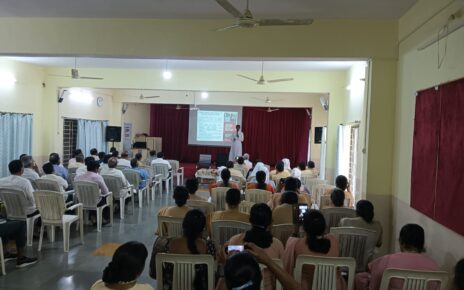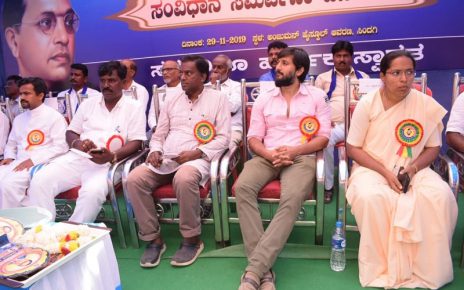COMMISSION FOR SC/ST/BC CHRISTIANS
Secretary: Fr Sunil Mankare Hulsoor
Joint Secretary: Fr Livin SCJ Talmadgi
Core Group: Fr Prashanth OFM Halbarga, Fr David Anthony Kamalnagar, Mr Arjun Kanak Basavakalyan, Mr Ramesh Wagge Bhalki, Fr Vincent Thoras Jalasangvi, Fr George Lobo Chincholi, Mr Arun Amrith Itga, Fr Teyol Machado S.J Vijayapura, Sr Veronica UFS Kaudayal, Mr Sathish Ujini, Mrs Sukeertha Bhalki.
Introduction
Dalits and Adivaasis, the indigenous people of India, rich in culture and history, have been blockaded in the written history, they were also deprived of their basic human rights in course of time. Attempts and struggles to regain the lost identity, dignity and human rights have been going on since then. In this process, religious conversion also took place where the Dalits wanted to be free of the caste clutches. Not only the Dalits but other backward classes also protested against the hierarchical caste system and we can see the emergence of Buddhism, Jainism and Sikkim from this angle. Many converted themselves to Christianity as well, which preached equality of all people and dignity of the individual. But unfortunately some of the caste people, who converted themselves to Christianity, carried with them the evil caste practices which are prevalent in the society. That is why we find the practices of untouchability practiced even among the Christians. The Government of India denies the Dalit Christians, the affirmative actions which are given to Dalit Hindus, Dalit Sikhs and Dalit Neo Buddhists. Thus the Dalit Christians are discriminated in the society, by the fellow Christians and by the Government of India.
The Catholic Bishops’ Conference of India (CBCI) Office for Dalits and Backward Classes was established in 1986 for the holistic and integral development of the Dalits and Backward Classes. Jesus came that they may have life, and have it abundantly” (John: 10:10). Thus the whole Church takes the responsibility of empowering the Dalits. In this process of empowering, we get the support and solidarity of many who are not Dalits but still committed to the cause of the Dalits. Now we have guidelines to empower Dalits who are in need of special care & concern. A Policy of Dalit Empowerment in the Catholic Church in India was released 8th December 2016 is a great milestone in the struggle for liberation of Christians of dalit origin. The Commission works for the implementation of the policy.
VISION: The Dalits freely enjoy their Rights.
MISSION
- Restoration of the rightful dignity of Dalits.
- Availing equal opportunities to Dalit Christians with others.
- Accessibility to the Constitutional safeguards enjoyed by other Dalits.
GOALS
- Capacity Enhancement.
- Access to Dalit Rights.
Objective 1: By 2024, the educated youth of Dalit Christians are instilled with Christian spirituality.
Indicator
- The Dalit Christian youth are enriched with Christian spirituality.
Strategies
- Conducting retreats, seminars and sessions in collaboration with Education, Youth and Catechetics Commissions.
Activities:
- Programmes to deepen the faith of the people.
Objective 2: By 2022, 15% of the educated Dalit Christian youth are undergoing higher education.
Indicator
- Dalit Christian youth are enrolled in higher education institutions.
Strategies
- Data of the Dalit Christian youth & their educational status is collected by the Commission from Std VIII onwards right up to II PUC
- Information on government scholarships is made known to the Dalit catholic youth.
Activities:
- Identify A& A+ grade students from 8th std and promote them for higher studies – in collaboration with Education Commission.
- Identify the students with distinction in SSLC & PUC and do proper placement
Objective 3: By 2024, 20% of Dalit Christians are trained in Skill Development & income generation programmes.
Indicators
- Dalit Christians have engaged in their own income generation activities.
Strategies
- Trainings programmes are conducted in Skill Development and income generating schemes.
Activities:
- Motivate the students to join the skill development t training institutions.
Objective 4: By 2024, all the Dalit Christians are aware of the Government schemes available for them.
Indicators
- Dalit Christians especially the youth, have the knowledge on various Government Schemes and benefit from them.
Strategies
- Collecting data of Christian officers and Government servants.
- Training programmes are conducted on various Government schemes in collaboration with Govt. departments.
- Printed materials on Government Schemes, especially for SC, ST and OBC are prepared and circulated.
Activities:
- Training the leaders





